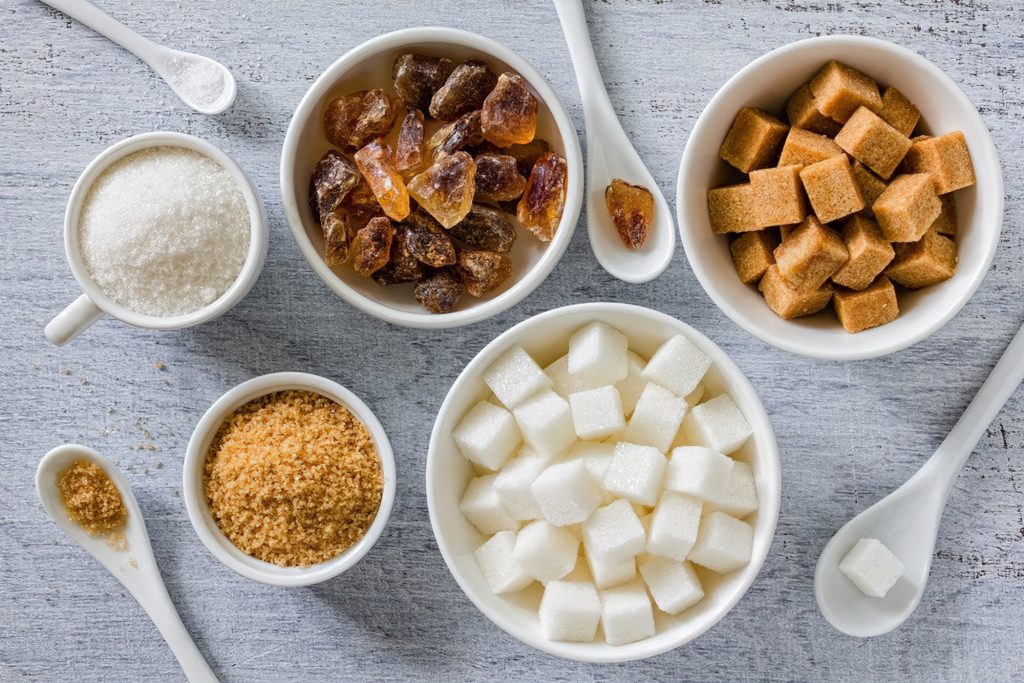The consumption of refined sugar has been linked to numerous health issues, including obesity, diabetes, and heart disease. As a result, many people are seeking healthier sugar alternatives to satisfy their sweet cravings without compromising their well-being. This article explores a variety of natural sugar substitutes that provide a delicious sweetness without the negative consequences associated with refined sugar. We will delve into the risks of refined sugar, various natural alternatives, and ways to incorporate them into your diet, all while maintaining a readable, concise, and logical flow.
Understanding the Risks of Refined Sugar
Refined sugar is a processed form of sugar that is stripped of its natural nutrients, leaving only empty calories behind. Overconsumption of refined sugar can lead to weight gain, insulin resistance, and increased inflammation, among other health problems. Additionally, it has been linked to tooth decay and an increased risk of certain types of cancer. By opting for natural sugar alternatives, you can enjoy the sweetness you crave while avoiding these potential risks.
Top Natural Sugar Alternatives
a. Honey: Rich in antioxidants and enzymes, honey provides a natural sweetness with potential health benefits. Opt for raw, unfiltered honey to reap the most benefits. Honey’s versatility allows it to be used in various recipes, from sweetening tea to baking. Keep in mind that honey should not be given to infants under one year old due to the risk of botulism.
b. Maple syrup: Derived from the sap of maple trees, this natural sweetener contains minerals and antioxidants. Choose 100% pure maple syrup to ensure no added sugars or artificial ingredients. Maple syrup is ideal for drizzling on pancakes, waffles, or oatmeal, and can even be used in baking.
c. Stevia: A zero-calorie sweetener derived from the stevia plant, stevia is much sweeter than sugar, so use it sparingly. Look for pure stevia extract without added fillers or artificial flavors. Stevia is suitable for those watching their calorie intake or managing diabetes.
d. Coconut sugar: Made from the sap of coconut palm trees, coconut sugar has a low glycemic index, meaning it won’t cause rapid spikes in blood sugar. It also contains trace amounts of minerals and nutrients. Coconut sugar can be used as a one-to-one replacement for refined sugar in recipes.
e. Dates: High in fiber, vitamins, and minerals, dates offer a natural sweetness that can be used in smoothies, baked goods, or as a sugar replacement in many recipes. Dates are also a great source of energy, making them an ideal snack.
f. Agave nectar: Extracted from the agave plant, agave nectar is a natural sweetener with a low glycemic index. However, it is high in fructose, so it should be consumed in moderation. Agave nectar can be used in beverages or as a topping for yogurt or granola.
How to Incorporate Natural Sugar Alternatives into Your Diet
a. Gradually make the switch: Start by replacing a portion of the refined sugar in your recipes with a natural sweetener and gradually increase the ratio as your taste buds adjust.
b. Experiment with recipes: Try using different sugar alternatives in various recipes to find the ones that work best for your taste preferences and dietary needs.
c. Be mindful of portion sizes: Remember that natural sugar alternatives still contain calories and should be consumed in moderation to maintain a balanced diet.
Additional Considerations for Choosing Sugar Alternatives
a. Glycemic index: Consider the glycemic index of your chosen sugar alternative, as it can affect blood sugar levels. Lower glycemic index sweeteners have a less dramatic impact on blood sugar.
b. Food allergies and sensitivities: Be aware of any allergies or sensitivities you or your family members may have to certain sugar alternatives. For example, some people may be allergic to stevia or experience gastrointestinal discomfort from sugar alcohols like xylitol.
c. Sustainability and environmental impact: When selecting a sugar alternative, consider the environmental impact of its production. For instance, agave nectar production can contribute to the deforestation of certain habitats, while the production of maple syrup is generally more sustainable.
d. Cost: Some natural sugar alternatives can be more expensive than refined sugar. However, their potential health benefits may be worth the investment, so evaluate your budget and prioritize the alternatives that are most important to you.
Conclusion: Incorporating natural sugar alternatives into your diet is a smart choice for those looking to reduce their consumption of refined sugar without sacrificing sweetness. By understanding the risks associated with refined sugar and exploring healthier options, you can make informed decisions about the sweeteners you use in your everyday cooking and baking. With a variety of options available, from honey and maple syrup to stevia and coconut sugar, there is a natural sweetener to suit every taste and dietary need.

